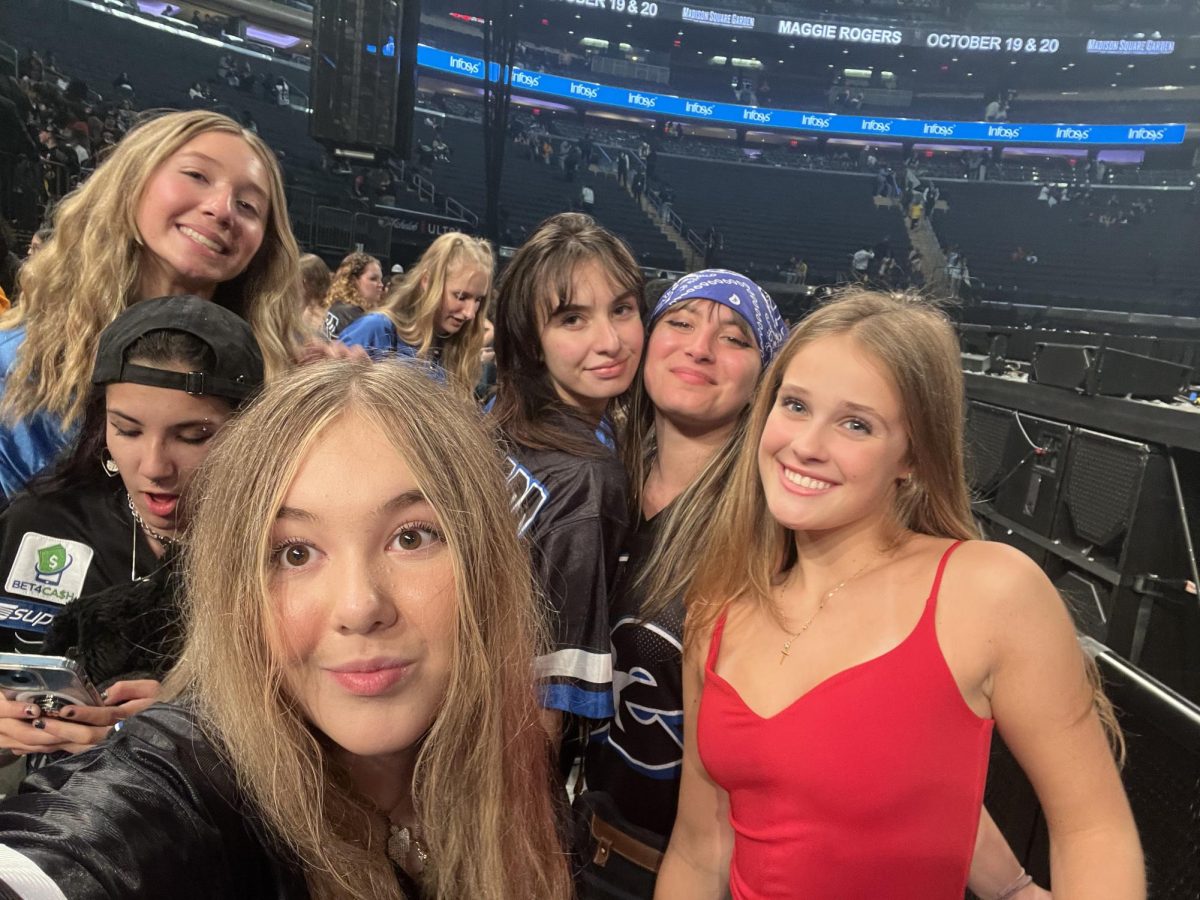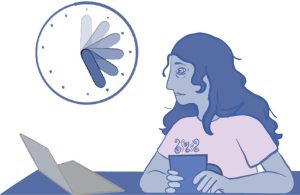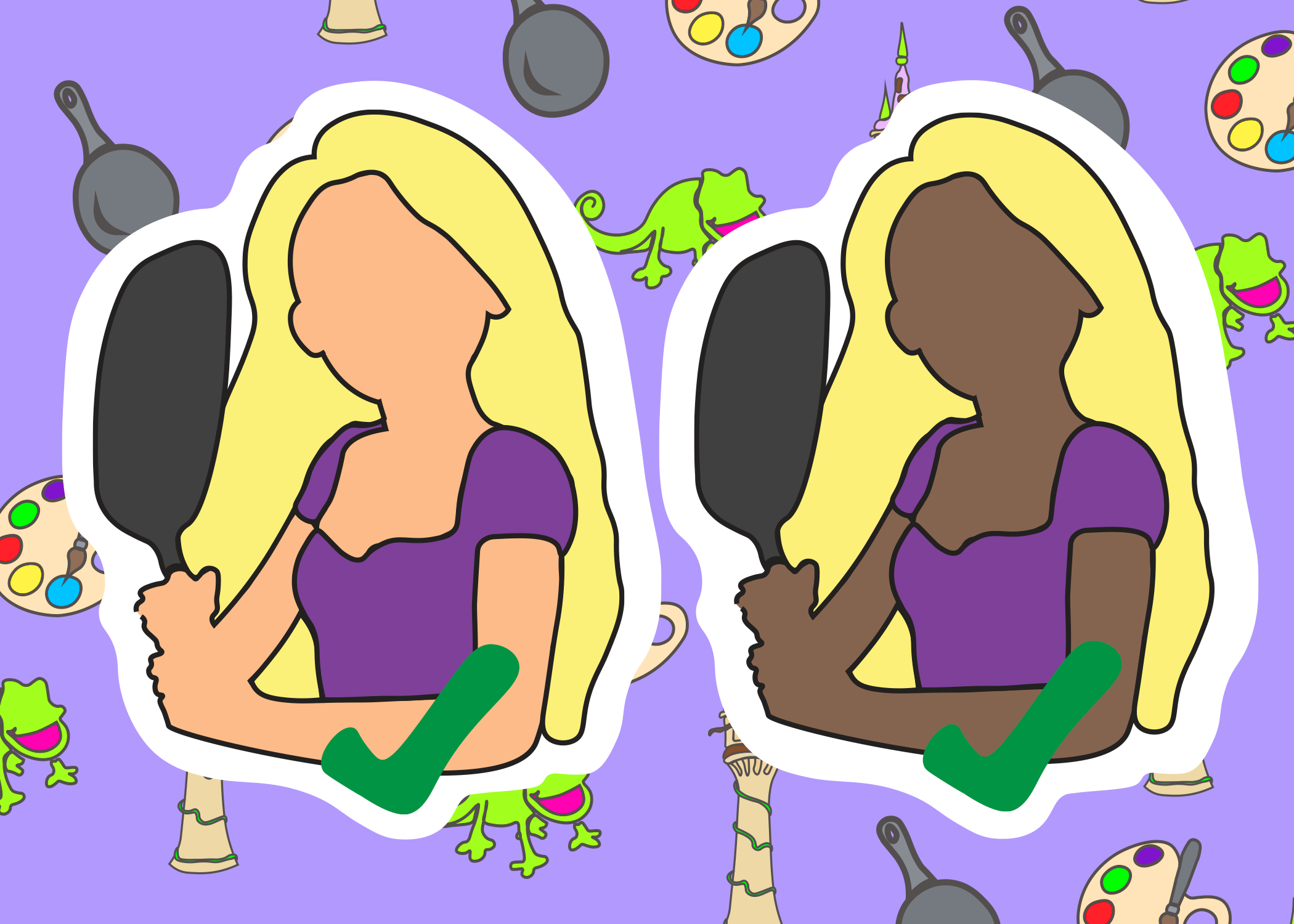Seniors Sari Kaufman and Jacob Kanfer launch educational website ‘MyVote’
Senior Sari Kaufman smiles with “MyVote” on her laptop, the website she created with the help of senior Jacob Kanfer and Duke professor David McAdams.
February 20, 2020
With the upcoming 2020 presidential election set for Tuesday, Nov. 3, MSD seniors who are 18 years of age or older, are eligible to vote for the first time. Utilizing MyVote, students are able to read a nonpartisan, unbiased, overview of presidential candidates, Democrats and Republicans, and their stance on gun safety. In addition to the page dedicated to the overview of candidates, there is also a page that describes different policies with their descriptions, pros and cons. The four policies which can be found include background checks, a ban on assault weapons/ammunition cap, red flag laws and the Protection of Lawful Commerce in Arms Act.
“As I researched the different reasons for low voter turnout and ineffective politicians, I realized that many people feel uncomfortable because they do not have the knowledge about who is running. Therefore, many people cast low-information votes, and turn to gender or party affiliation to make their decision,” Kaufman said. “MyVote is a super easy and accessible way for students to gain insight into the politicians and policies that, if elected, will impact their daily lifestyle.”
Additionally, Kaufman is the Co-President of Empower the People. Their mission statement affirms that they are “a nonprofit, nonpartisan, student-led organization, increasing youth awareness and engagement in our government and society.” ETP works with youth across the United States to connect civic education to enacting social change. The organization works with 10,000-50,000 students each semester to “implement youth-led projects and initiatives that positively impact their community,” the website states.
Working with Duke professor, David McAdams, political consultant, Gita Stulberg, and Duke Policy students, MyVote is ensured to remain nonpartisan. On the other hand, the website is partnered with Empower the People, and requires donations and funds to continue building their platform when convincing voters to cast an educated ballot on election day. MyVote’s project team has created a GoFundMe to help them in future endeavors.
“With your donations, we will be able to expand MyVote to cover local officials and more policies from healthcare to immigration,” Kaufman said. “Further[more], by covering local candidates we can open the dialogue between the voter and candidate to make them accountable once elected on their campaign promises.”
Not only were professionals involved with the launching of MyVote, another MSD student aided through coding. Senior Jacob Kanfer coded the entire site from scratch.
“About a couple months ago, Sari reached out to me and told me about the opportunity to code a website for the project she was currently a part of,” Kanfer said. “Specifically at Douglas, I think the site gives us, as students, the unique opportunity to learn more about the political landscape on a single site than any other site provides. It allows us to make our own conclusions on what we think is right rather than sticking with party lines and bashing the other point of view.”
The version of the site that is currently up now is part of the project team’s Stage 1 phase. The structure and coding of MyVote took around 30-50 hours to complete. Using html, CSS and JavaScript files, Kanfer will continue to make the MyVote even better in phase 2 with the help of a political coding professional. All his code can be found open sourced on his GitHub.
According to Kanfer, the website first began as blank text files. A JavaScript program was formulated for the candidate names, descriptions, policy stances, and images in a way that automatically added the html elements for the page. He then worked on the candidates page, the policy page, and lastly the home page as the main points of the site. Details, like bullet points and links, were later added to make it simple for those yearning to increase their knowledge on the candidates and see the sources for the content.
“The design of the site is centered around ease of use and readability. We wanted to make it as easy as possible for an individual to be able to absorb the information and I chose the style based on that fact,” Kanfer said. “To make the navigation on the candidates page easier, I added a search bar and face buttons. For the content, we wanted a uniform, non-partisan way to frame the content, hence the pro con format.”
Another one of Kanfer’s incorporations was a feature on the policy page called “Share Your Voice.” Clicking the icon will open a quick survey to answer on where you stand (agree/disagree) on a specific issue. The site will record the responses to communicate with the candidates about what their future constituents care about.
“Sari Kaufman is a lovely young girl who works really hard and really understands politics. I really admire how much knowledge that she strives to ascertain about the political process,” AP Government teacher Jeffrey Foster said. “Ever since as far as I know and talking to her this year, she’s been really engaged in the political process and she’s one of my brightest students. She’s definitely one of the top two or three most involved political students I’ve had in maybe even the last decade.
To help prepare new voters, Foster suggests watching the debates and conducting research, whether minimal or extensive.
“My wife for years has been looking for a website that could be nonpartisan and allow people to be able to differentiate between the candidates on their stances on certain issues,” Foster said. “It’s an enormous undertaking, and it’s going to take a lot of people [and] effort to continue to update it and keep it current. Everything I’ve seen when she showed it to me [looked] like a perfect website.”
Since Kaufman is only 17 years old, she cannot vote in the primaries of the election, but she will be headed to New Haven, Connecticut to attend Yale University and study political science in the approaching 2020-21 school year.












